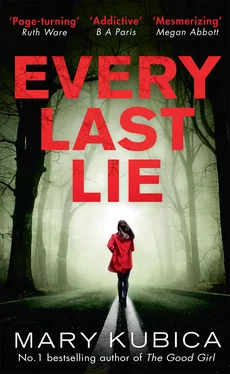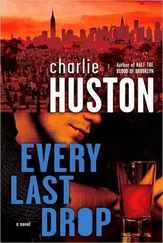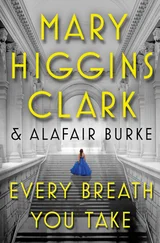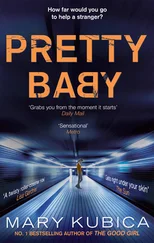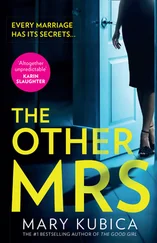It’s then that Felix’s pacifier manages to fall from his mouth and onto the blistering tar; in one fell swoop, I pick it up and stuff it back into his mouth before he has a chance to notice its absence, not caring what dirt or germs now live on the end of that plastic device but needing him quiet. His idle sucking resumes, though Maisie is now completely inert, standing in the middle of the parking lot, pointing. Pointing and crying. Pointing at a car, a black car, though from the distance I can’t see its make or model. All I know is that it is black and dusty, the cause of Maisie’s sudden and inexplicable tantrum.
Her body has begun to shake uncontrollably; urine creeps from below the hem of a knitted dress and down the inside of her wobbly leg, collecting in the sole of her hot-pink Crocs. Maisie, who has already peed three times before we could leave. One wouldn’t think there was any more urine left to pee. But there it is, the amber liquid trickling to the asphalt as Maisie manages to wrench her hand free of mine and makes an attempt to run. I blame the sweat for this, the slippery moisture slathered between our hands, as she sprints across the parking lot without looking for cars, so that another driver must slam on the brakes to keep from hitting Maisie, issuing me a dirty look as she does.
I’m so sorry, I’m so sorry, I mouth as I steer the cart across the lot to try to reclaim the little girl who now darts pell-mell through the rows of parked cars. I am faster than Maisie, this much I know, and yet with Felix and the shopping cart in tow, I’m not as sprightly as she. I can’t squeeze through the rows of cars like Maisie can, going this way and that like the steel ball of a pinball machine. My heart races, waiting for the blare of a car horn, the squeal of brakes, a little girl’s agonizing cry.
“Maisie!” I call to her over the still summer air. “Maisie!” I scream, so that half the town’s population, it seems, turns to see what the fracas is all about, pointing in lukewarm concern at the little girl running recklessly through the parking lot, two matted pigtails streaming down her back. Felix again loses his hold on his pacifier, but I can’t be slowed down. Over the sound of my own screaming, Felix, too, begins to scream. I grab Felix from the shopping cart and begin to run, though the weight of his infant carrier slows me down, my legs like lead.
Others in the parking lot turn to look at Maisie, but none do a single thing to stop her. Instead their eyes travel to me, wondering what kind of mother I am that I let my daughter run like this through a crowded parking lot. Don’t I know how dangerous this is?
“Clara?” I hear a voice then, kind, concerned. I turn. Emily, my neighbor and friend. She stands too closely and places a hand on my arm, and I see her little four-year-old, Teddy, obediently standing by her feet, without the need to hold hands. “What’s happened, Clara?” she asks, her desperate voice mimicking my own. “What’s wrong?”
“Maisie,” I say, and before I can tell her or even point to Maisie off in the distance, streaming through the rows of cars that gleam in the afternoon sun, Emily tells Teddy to stay with me and then takes off in a sprint. Emily is a fast runner, much faster than Maisie is, without the baggage that slows me down. I watch as Emily’s own long black hair billows behind her, her legs sailing through the parking lot with ease, closing the gap on Maisie, and collecting my little girl into her arms just like a good mother would do.
But not me. No, not me.
Rather, I stand idly by while some other woman saves my child.
“No, no, no, no, no,” says Maisie as she is returned to me, tears streaming from her eyes. She’s sweaty, her hair glued to the hairline. She kicks in Emily’s arms, wanting to be free. But Maisie doesn’t look at either of us, not Emily nor me, but rather at that black car, now parked two and a half rows behind us so that it’s near impossible to see. But I follow the route of Maisie’s terrified eyes to where the car should be and am absolutely certain that’s where she looks because she’s told me already, or rather implied it, that it was a black car that took Nick’s life, puzzle pieces I’ve gathered from Maisie’s cagey innuendos and placed together with care.
“Stop this, Maisie,” I say about her outburst, though I cling to her, my heart still pounding, knowing I was one distracted driver away from losing a child. How easy it would have been for a car to hit her, just one driver checking an incoming text message in the parking lot or peering over a shoulder to reprimand a child. That’s all it would have taken, one split second of distraction as Maisie tore across the parking lot and into their path. “Do you know what could have happened to you? You have to be more careful, Maisie. You have to hold an adult’s hand in the parking lot. Always,” I say, and then again, more forcefully, “always.”
“Thank you, Emily,” I say to the woman who stands before me, watching but not judging. “Thank you, thank you. I don’t know what would have happened if...” But I don’t finish the sentence; I can’t bear to say the words out loud. My hair, too, clings to my sweaty face; the sweat pools beneath my arms and in the crooks of my knees. Everywhere there is sweat.
“It’s all right,” she says, and, “No bother,” though her eyes inquire about Maisie’s outburst, and I palliate the truth by saying, “She doesn’t want to go grocery shopping. She’d rather stay home and play,” though I make no mention of the black car, which has her instantly terrorized, or the fact that my four-year-old has some latent belief that my husband was killed.
“Grocery shopping is so hard with the children,” Emily bemoans with a dramatic eye roll, though her little Teddy stands obediently beside her, carrying the plastic shopping bag. “Would you like to come home with Teddy and me?” asks Emily then, as she squats at the knees and leans in close to Maisie, her voice subdued in a way meant for kids’ ears. “Give Mommy a break for a while?” And as Maisie nods her slow approval, Emily rises up and says to me, “If it’s okay with you, Clara. Maisie can play with Teddy for a while. Let Felix and you shop. It would give me a break, too—they can entertain each other,” she says, assuaging my immediate concern with, “Theo is gone this week. An auto show in Massachusetts. He won’t be home for a few days,” and at this I nod my head numbly. I say okay, though still I have reservations about sending Maisie off with someone else, and yet there are other things on my mind, which trump these reservations.
“She’s had an accident,” I say apologetically, and Emily tells me it’s no bother. She can borrow something of Teddy’s while the clothes dry. “If you’re sure,” I say, and Emily says she’s sure. “Just let me move her car seat,” I say, but Emily says not to bother. She has an extra booster seat Maisie can use, and so instead I press my lips to Maisie’s forehead in a simple adieu.
I have only two things on my mind.
Infant formula.
Black car.
Конец ознакомительного фрагмента.
Текст предоставлен ООО «ЛитРес».
Прочитайте эту книгу целиком, купив полную легальную версию на ЛитРес.
Безопасно оплатить книгу можно банковской картой Visa, MasterCard, Maestro, со счета мобильного телефона, с платежного терминала, в салоне МТС или Связной, через PayPal, WebMoney, Яндекс.Деньги, QIWI Кошелек, бонусными картами или другим удобным Вам способом.
